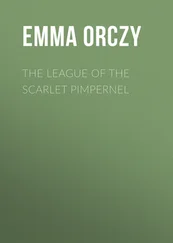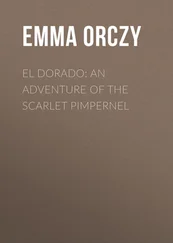Emma Orczy - Leatherface - A Tale of Old Flanders
Здесь есть возможность читать онлайн «Emma Orczy - Leatherface - A Tale of Old Flanders» — ознакомительный отрывок электронной книги совершенно бесплатно, а после прочтения отрывка купить полную версию. В некоторых случаях можно слушать аудио, скачать через торрент в формате fb2 и присутствует краткое содержание. Жанр: foreign_prose, foreign_language, на английском языке. Описание произведения, (предисловие) а так же отзывы посетителей доступны на портале библиотеки ЛибКат.
- Название:Leatherface: A Tale of Old Flanders
- Автор:
- Жанр:
- Год:неизвестен
- ISBN:нет данных
- Рейтинг книги:3 / 5. Голосов: 1
-
Избранное:Добавить в избранное
- Отзывы:
-
Ваша оценка:
- 60
- 1
- 2
- 3
- 4
- 5
Leatherface: A Tale of Old Flanders: краткое содержание, описание и аннотация
Предлагаем к чтению аннотацию, описание, краткое содержание или предисловие (зависит от того, что написал сам автор книги «Leatherface: A Tale of Old Flanders»). Если вы не нашли необходимую информацию о книге — напишите в комментариях, мы постараемся отыскать её.
Leatherface: A Tale of Old Flanders — читать онлайн ознакомительный отрывок
Ниже представлен текст книги, разбитый по страницам. Система сохранения места последней прочитанной страницы, позволяет с удобством читать онлайн бесплатно книгу «Leatherface: A Tale of Old Flanders», без необходимости каждый раз заново искать на чём Вы остановились. Поставьте закладку, и сможете в любой момент перейти на страницу, на которой закончили чтение.
Интервал:
Закладка:
But now when he straightened out his tall figure, he suddenly sought her eyes, and seemed to compel her glance by the very intentness of his own.
"Give Messire van Rycke your hand, Lenora," commanded de Vargas.
And the girl-obediently and mechanically-stretched out her small, white hand and Mark van Rycke touched her finger tips with his lips.
Every one noticed how closely señor de Vargas had watched his daughter all the while that the formal ceremony of betrothal was taking place, and that, as soon as donna Lenora had extended her hand to Messire van Rycke a smile of intense satisfaction became apparent round the corners of his mouth.
"And now, Messire," he said solemnly, and turning once more to the bridegroom-elect, "it is my pleasant duty to apprise you that our Sovereign Lord and King hath himself desired that I should be his mouthpiece in wishing you lasting happiness.
"I thank you, Messire," said Mark van Rycke quietly.
"As you know," continued de Vargas speaking with paternal benevolence, "it is the Lieutenant-Governor's earnest wish that we should hasten the wedding. He himself hath graciously fixed this day sennight for the religious ceremony-the festival day of Our Lady of Victory-a great and solemn occasion, Messire," he continued unctuously, "which will sanctify your union with my daughter and confer on it an additional blessing."
"As His Highness commands," rejoined Mark somewhat impatiently.
He had made several efforts to meet his beautiful bride's glance again, but she kept her eyes steadily averted from his now.
Truly so cold and unemotional a bride was enough to put any bridegroom out of patience. No doubt had Laurence van Rycke stood there instead of Mark there might have been enacted a little scene of ill-temper which would have disturbed don Juan de Vargas' unctuous manner. But Mark took it all as a matter of course: he looked supremely indifferent and more than a little bored whilst his prospective father-in-law delivered himself of all these urbane speeches. He had obviously been deeply struck at first by donna Lenora's exquisite beauty, but now the effect of this pleasing surprise had worn off, he looked down on her with cool indifference, whilst a little smile of irony became more and more accentuated round his lips. But the High-Bailiff appeared overjoyed; his flat, Flemish face gradually broadened into a huge, complacent smile, he leaned on the arm of his son with easy familiarity and every one felt that-had señor de Vargas demanded such a token of gratitude and loyalty-Mynheer Charles van Rycke would have laid down on the floor and licked the dust from Monseigneur's slashed shoes.
At last the interminable ceremony of betrothal was over and donna Lenora was given a little breathing time from the formal etiquette which surrounded her father whenever he represented the Lieutenant-Governor, and which oppressed this poor young girl physically like the stiff corslet which she wore.
She looked around her a little wistfully: her father was busy conversing with the High-Bailiff, no doubt on matters connected with the respective marriage-jointures: all around in the magnificent hall, under the high roof emblazoned and decorated with the arms of the city and the banners of the city guilds, a noisy throng, gaily dressed, pressed, jostled and chattered. The ladies of Ghent-somewhat unwieldy of figure and with none of the highly-trained æsthetic taste of Spanish civilisation-had decked themselves out in finery which was more remarkable for its gorgeousness than for harmony of colour.
The lateness of the season had proved an excuse for wearing the rich velvets and brocades imported from Italy, cloth of gold heavily embroidered, stomachers wrought in tinsel threads and pearls, hooped petticoats and monster farthingales moved before donna Lenora's pensive eyes like a kaleidoscope of many colours, brilliant and dazzling. The deep window embrasures each held a living picture grouped against the rich background of heavy velvet curtains or exquisite carved panelling; men and women in bright crimson, or yellow or green, the gorgeous liveries of one or other of the civic corporations, the uniforms of the guild-militia, the robes of the sheriffs and the wardmasters, all looked like a crowd of gaily plumaged birds, with here and there the rich trenchant note of a black velvet tunic worn by a member of one of the learned bodies, or the purple satin doublet of a Spanish grandee. The Flemish bourgeoisie and patriciate kept very much to itself-the women eyeing with some disfavour the stiff demeanour and sombre clothes of the Spaniards who remained grouped around the person of don Juan de Vargas. There was also the element of fear, never far distant when the Spanish officers of State were present. They personified to all these people the tyranny of Spain-the yoke of slavery which would never again be lifted from the land. The Netherlanders feared their masters, and many cringed and fawned before them, but they never mixed with them; they held themselves entirely aloof.
There were no Spanish ladies here. The Duchess of Alva was not in Flanders, the grandees and officers of Alva's army had left their wives and daughters at home in Arragon or Castile; the stay in these dour and unsympathetic Low Countries was always something of a punishment to these sons and daughters of the South, who hated the grey skies, the north-easterly winds and perpetual rains.
Thus donna Lenora found herself strangely isolated. The Flemish ladies banded themselves in groups, they chatted together, whispered and made merry, but the Spanish girl who had stood in high honour beside the Lieutenant-Governor's representative was not one of themselves. She was slim and tall and graceful, she was dressed in simple white; above all, she belonged to the ruling caste, and though many a kind-hearted Flemish vrouw pitied her in her loneliness, not one of them thought of going to speak to her.
Donna Lenora sighed and her eyes filled with tears-with tears not altogether of sorrow, but also of self-pity mingled with bitter resentment. Even the company of her future husband might have been acceptable at this moment, when she felt so very lonely.
But Mark van Rycke was no longer nigh.
Then suddenly her face lit up with joy, the colour rushed to her cheeks, and her lips parted in a smile.
She had just espied in the brilliant throng, one no less brilliant figure which was slowly pushing its way through the crowd in her direction.
"Ramon," she whispered, as soon as the young man was quite close to her, "I didn't know you were here."
"His Highness," he replied, "has given me command of the garrison here; I arrived last night with my regiment."
"But where are your lodgings?"
"At the house of those thrice accursed van Ryckes," he muttered with an oath. "The billeting was arranged without my knowledge, and of course I and my men leave those quarters to-morrow. Every morsel I eat in that house seems to choke me."
"Poor Ramon!" she whispered with tender pity. "I too have been unutterably wretched since I saw you in Brussels."
"I couldn't communicate with you again, sweetheart-and this to my great grief-but I was bundled out of Brussels like a bale of goods, and here I am! Imagine my joy when I realised that I should see you to-night."
"Hush!" she murmured quickly, for with a quick impulse he had seized her hand and was pressing it to his lips. "My father can see us."
"What matter if he do," retorted don Ramon. "He has taken you from me, but he cannot kill my love … our love, Lenora," he added with passionate ardour-an ardour in which he himself believed for the moment, since he loved Lenora and she was so exquisite, in her stateliness, her white gown and that casque of golden hair upon her head.
Читать дальшеИнтервал:
Закладка:
Похожие книги на «Leatherface: A Tale of Old Flanders»
Представляем Вашему вниманию похожие книги на «Leatherface: A Tale of Old Flanders» списком для выбора. Мы отобрали схожую по названию и смыслу литературу в надежде предоставить читателям больше вариантов отыскать новые, интересные, ещё непрочитанные произведения.
Обсуждение, отзывы о книге «Leatherface: A Tale of Old Flanders» и просто собственные мнения читателей. Оставьте ваши комментарии, напишите, что Вы думаете о произведении, его смысле или главных героях. Укажите что конкретно понравилось, а что нет, и почему Вы так считаете.












